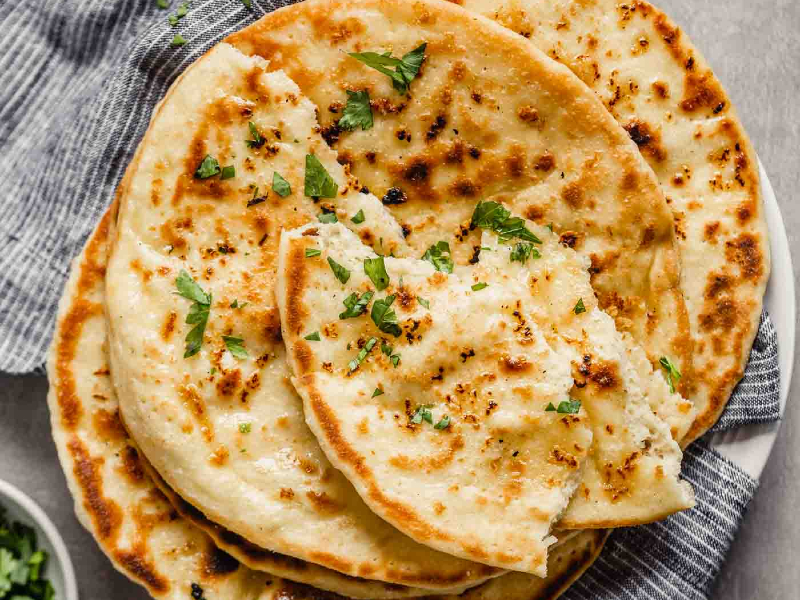
Naan vs Roti What Is The Difference? Asian Recipe
The different ingredients give a far different texture: naan is soft and chewy, while roti is dense and thin. To traditionally cook these flatbreads, naan rests in a large cylindrical oven, while roti cooks over a grill. Additionally, roti can be considered a vegan flatbread, while naan's inclusion of dairy only makes it vegetarian.
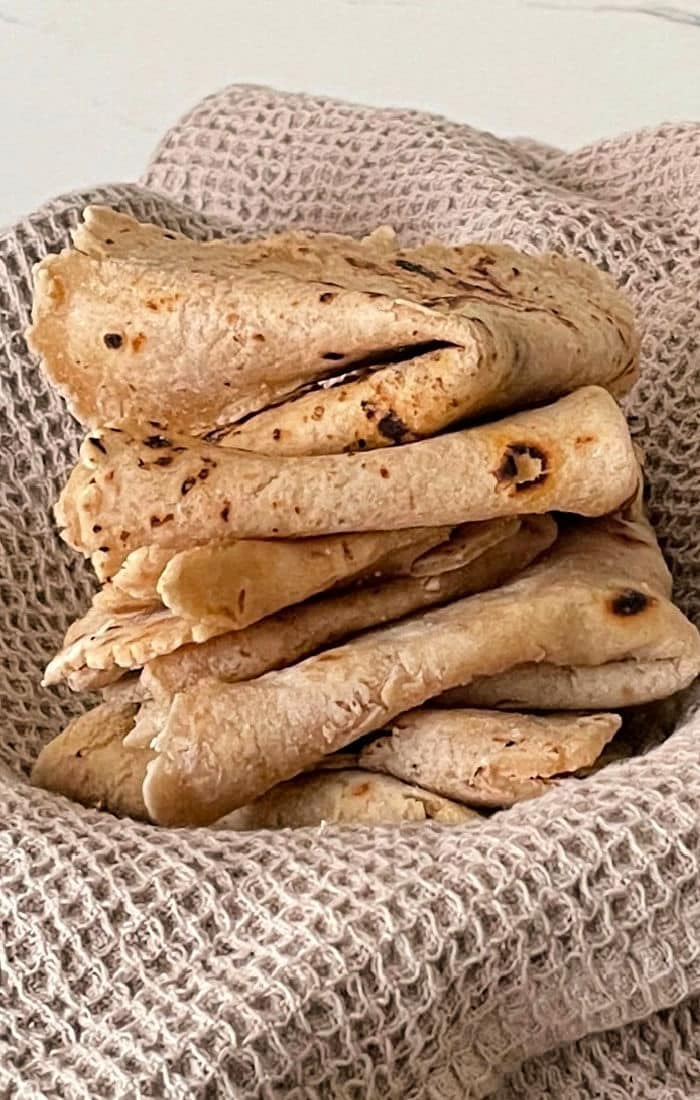
Difference Between Roti vs. Naan Gluten Free Roti Recipe
Sep 23, 2023. 13. When it comes to cooking methods, Naan and Roti differ noticeably. Naan is traditionally baked in a tandoor, a cylindrical clay or metal oven. This method of cooking provides Naan with its characteristic charred spots and smoky flavor. Roti, in contrast, is typically cooked on a flat griddle or tava.

Tandoori Roti Vs. Naan Which One Is Better? TheFoodXP
MAKE NAAN BREAD. Maida flour is refined and powdery, which creates a denser, pillowy bread. The leavening process also breaks down the gluten and contributes to naan's soft texture. For this.
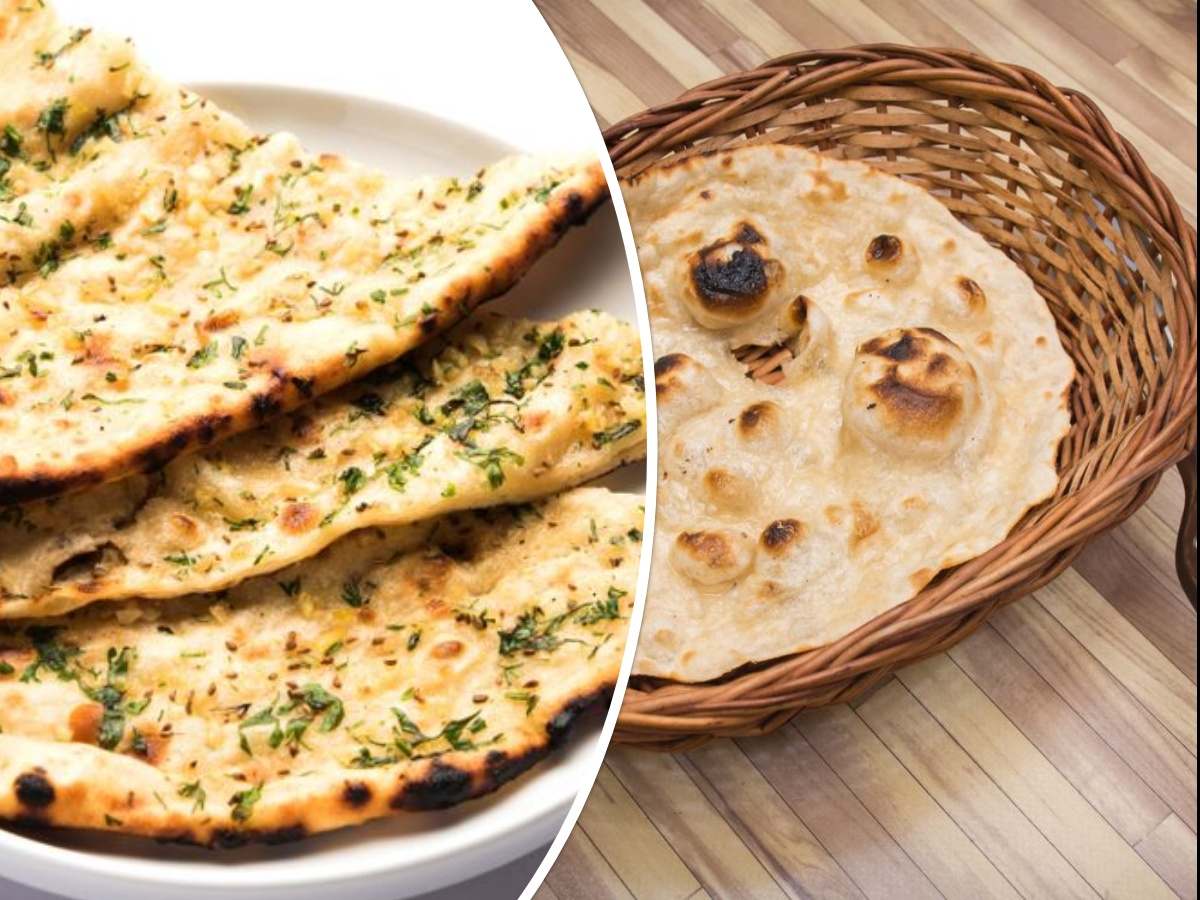
Tandoori Roti Vs Naan Spot Main Differences 2022 All My Recipe Aria Art
Naan is cooked in a tandoor; roti is cooked on a tawa. Naan is a much heavier food and can be eaten as a meal on its own; roti is very light. Naan is higher in calories; roti is lower in calories. Naan is chewy; roti is coarser in texture. Naan is usually thicker than roti.
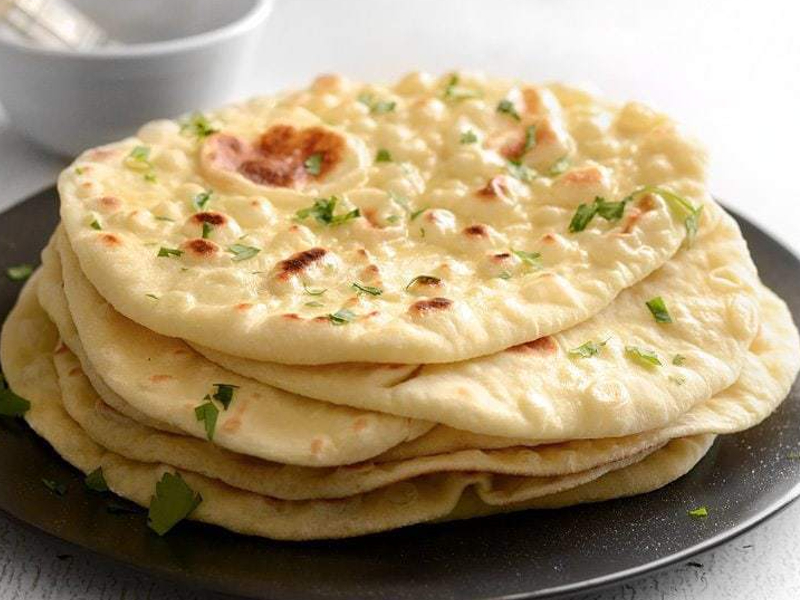
Naan vs Roti What Is The Difference? Asian Recipe
Naan is a leavened bread made with white flour. According to my research, the bread is usually leavened with yeast and sometimes baking powder or a combination of both. Naan is thicker than the unleavened breads. Roti is traditionally made on a tawa or griddle, whereas naan is often, but not always, made in a tandoor.
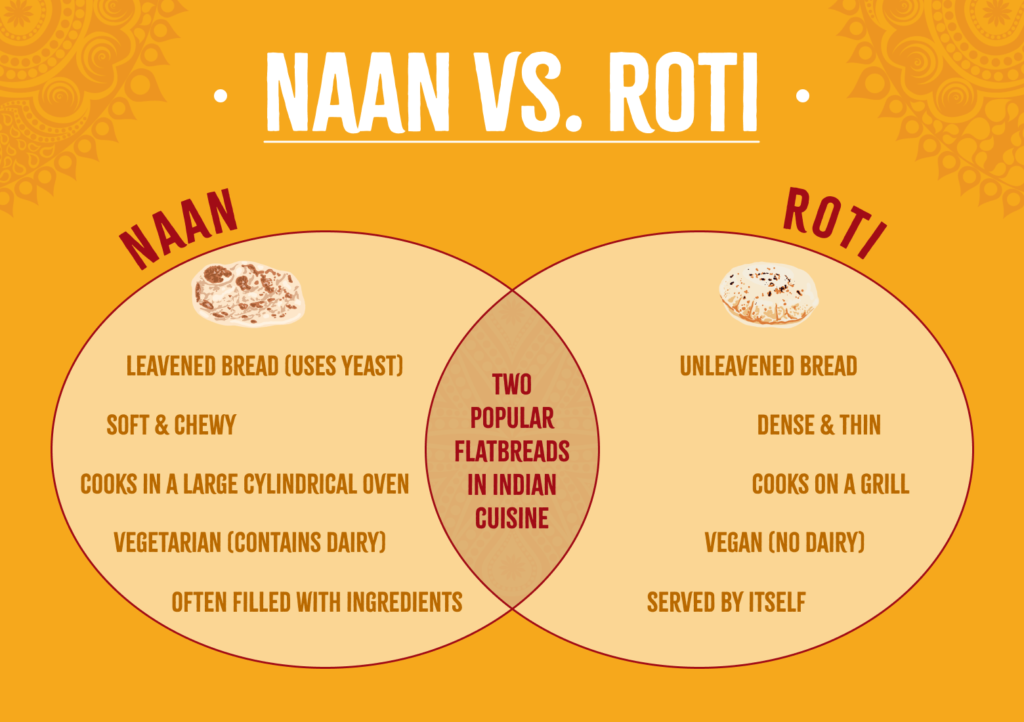
Roti vs. Naan What’s the Difference? Sukhi's
Roti is a flatbread that resembles tortillas. It's unleavened and light because it doesn't have any extra bread filling. Naan, on the other hand, is denser and puffier. It's also heavier than roti. The thickness of naan may vary, depending on how it's made, but it's always thicker than roti.
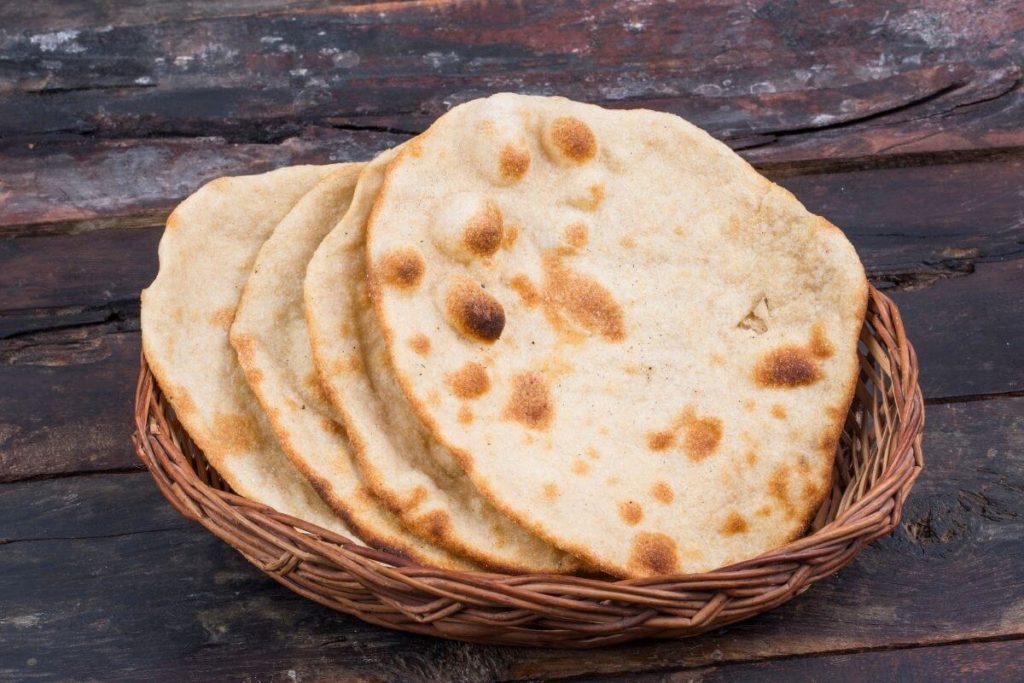
What is the Difference Between Naan and Roti? (Updated 2023)
Because of their differing ingredients, folks will find that naan has a thicker and chewier texture when compared to roti (which is fairly thin and flat), according to Recipe Marker. This is because naan is a leavened flatbread, while roti is an unleavened flatbread. Another difference between the two is that roti can be considered vegan bread.

Roti vs. Naan Which Indian Flatbread Is Superior?
Naan is typically made with a combination of all-purpose flour and yeast, which gives it a lighter and softer texture compared to roti. The dough for naan is often enriched with yogurt, warm water, and sometimes even eggs, resulting in a soft and pliable dough. Traditionally, naan is cooked in a tandoor oven, a clay oven that imparts a unique.

Tandoori Roti Vs Naan — What's The Difference? Foods Guy
1.Roti is a staple diet whereas naan can be used only in a single meal of the day. 2.Rotis are light and more nutritious; naan comprises a heavy food and takes time to digest. 3.Rotis are made out of whole wheat flour; naan is made out of refined flour. 4.Roti is made out of plain flour whereas Naan is made out of leavened dough.
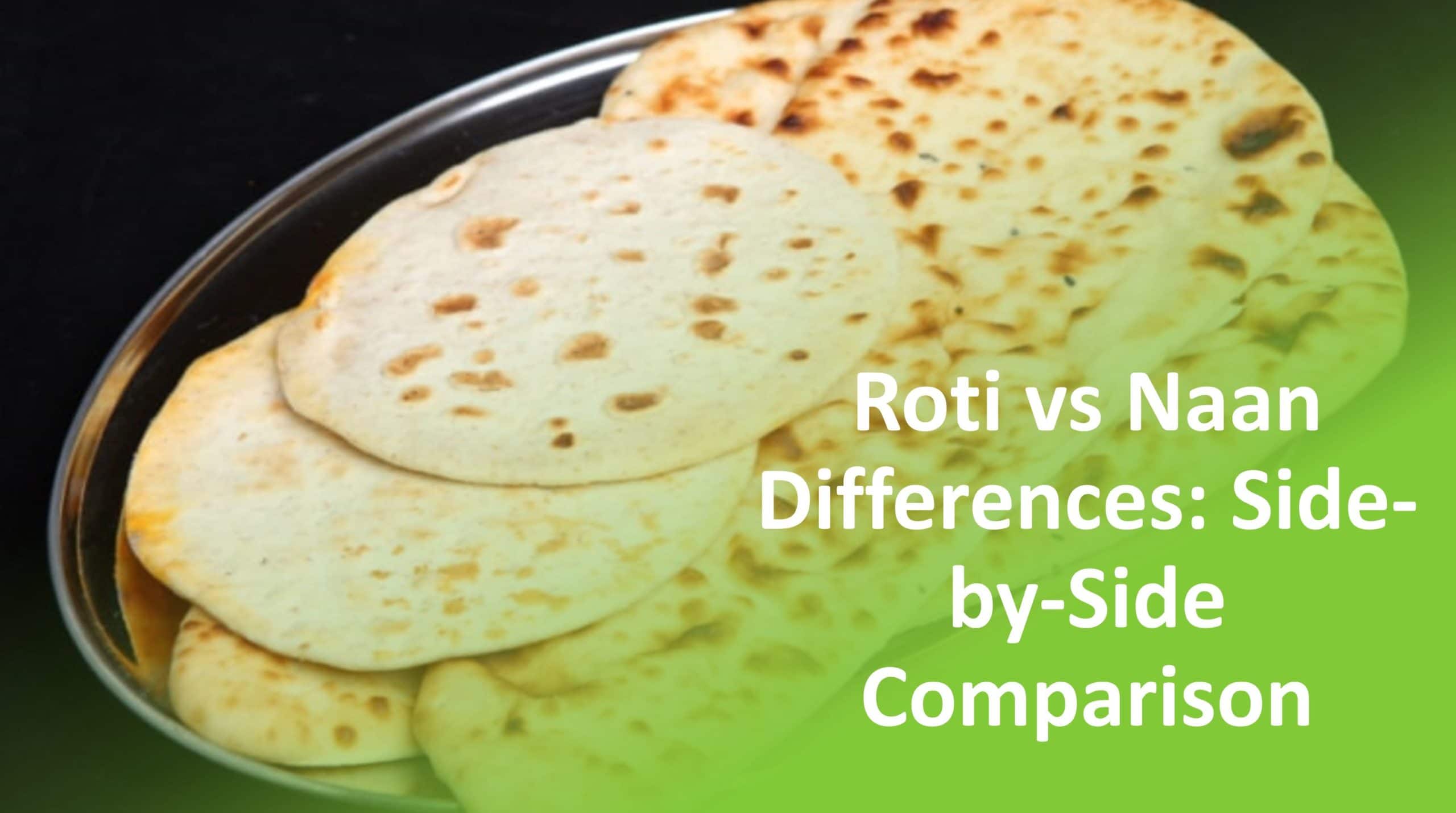
Roti vs Naan Differences SidebySide Comparison
The first and major distinction between the two pieces of bread is the dough. Naan uses leavened dough, which is proofed with yeast or dough starters. Roti's dough isn't leavened and is made from whole-wheat flour. In terms of texture, naan is softer and chewy, mainly because of the yeast, while roti is coarser and less elastic, yet chewy.
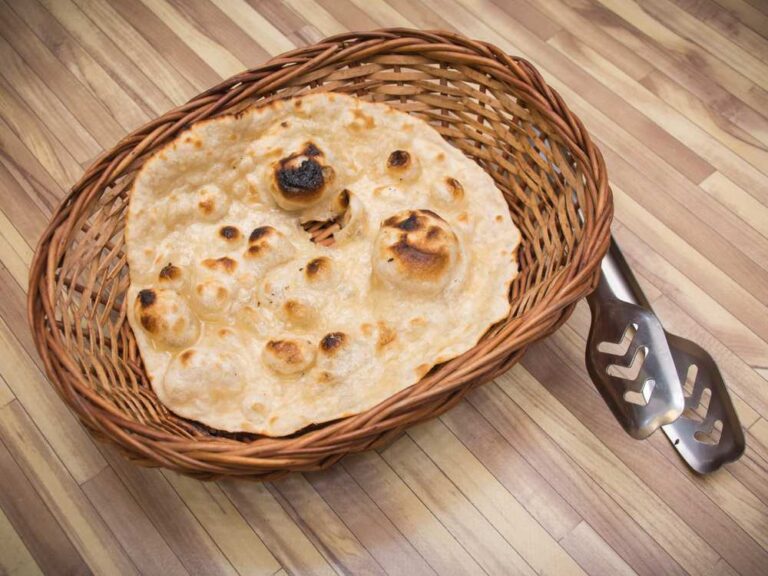
Tandoori Roti Vs Naan Spot Main Differences (2023) All My Recipe
15 facts about differences and similarities. Origin: Both Roti and Naan have their roots in the Indian subcontinent. Leavening: Naan uses yeast or baking powder, while Roti does not, resulting in different textures. Cooking Surface: Roti is cooked on a flat griddle, while Naan is cooked in a clay oven. Flour Type: Whole wheat flour is used for Roti, while Naan is made with all-purpose flour.
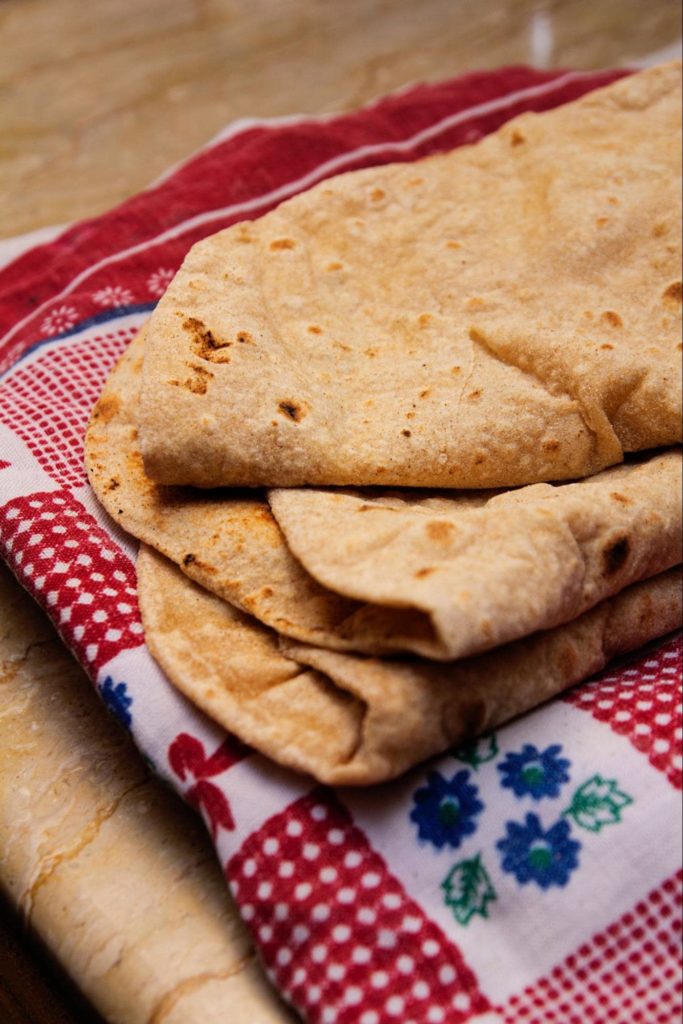
Roti vs. Naan What’s the Difference? Sukhi's
Naan is chewier than roti because it's partially baked in an oven before being finished on a skillet. Roti is softer than naan because it's cooked on a hot skillet like chapati or paratha rather than in an oven. 4. In terms of taste. Naan has more moisture than roti and therefore absorbs more sauce.
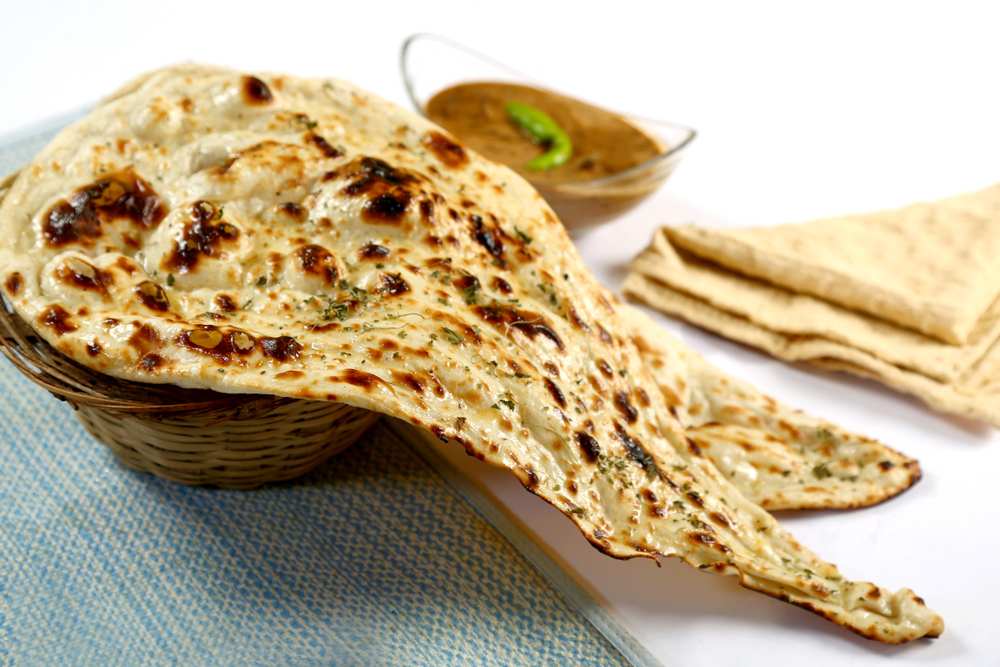
Tandoori Roti Vs Naan Spot Main Differences (2023) All My Recipe
- Roti and naan are two flatbreads in Indian cuisine that are often mistaken as being the same due to their similar appearance. - Roti is an unleavened flatbread made with wheat and water, cooked on a flat tawa or over an open flame. - Naan, on the other hand, is made with all-purpose flour and whole wheat flour, or a combination of the two. - Naan is cooked in a tandoor and has a thicker.

Indian Roti Vs. Naan What is the Difference?
When considering the ingredients, "Naan" often includes yogurt, milk, or eggs, contributing to its softer, more substantial texture and rich flavor. "Roti", on the other hand, usually consists of whole wheat flour, water, and salt, making it a lighter, everyday staple in many South Asian households.
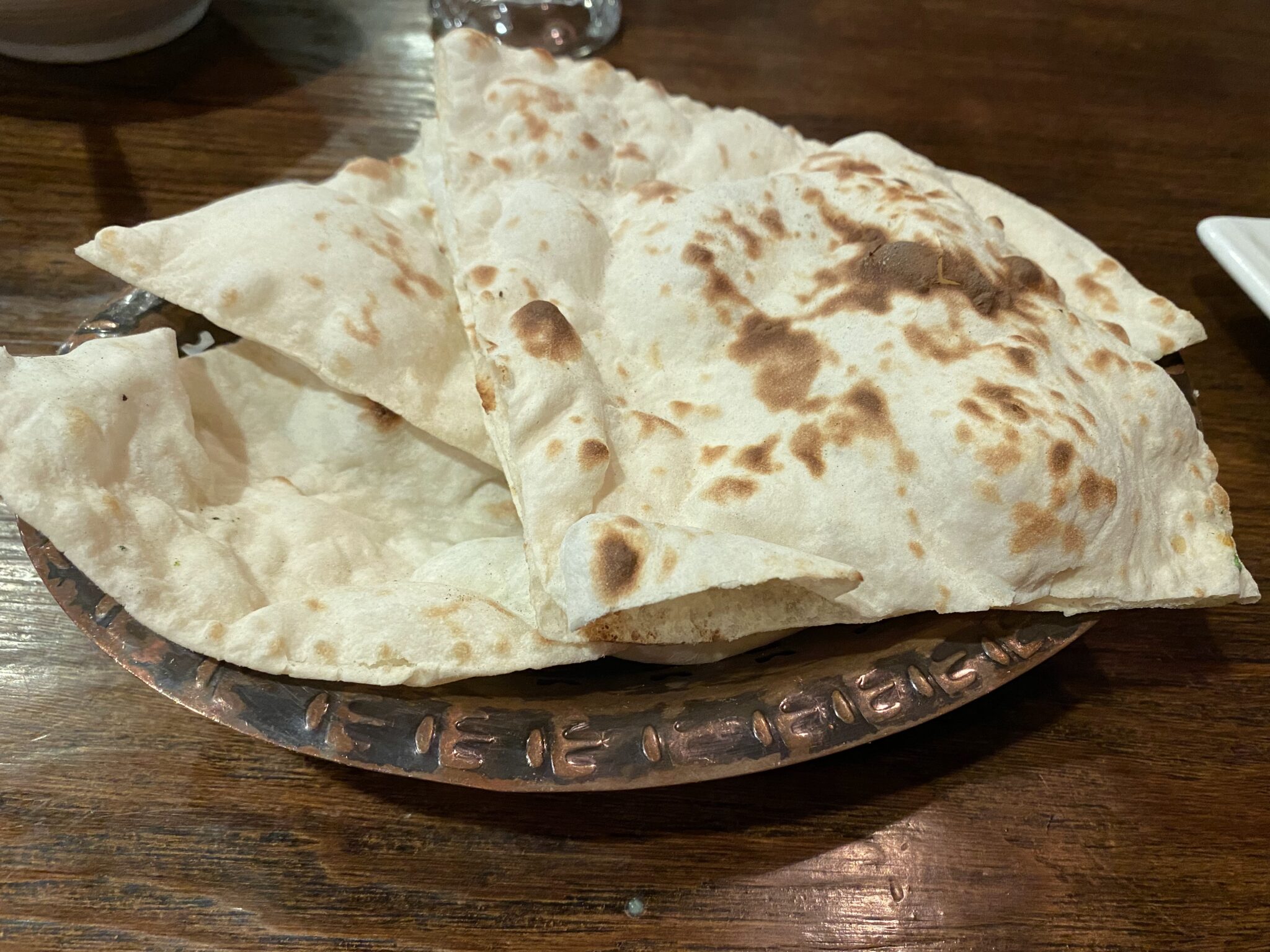
Tandoori Roti vs Naan Spot the Main Dissimilarities Urban Tandoor
Nutritional Value. When it comes to calorie content, roti will have a much lower calorie content than naan. This will make it the better flatbread for people who are looking to watch their weight. Roti is packed with different vitamins and minerals. Nan has much more calories and contains more amounts of fat and cholesterol compared to roti,
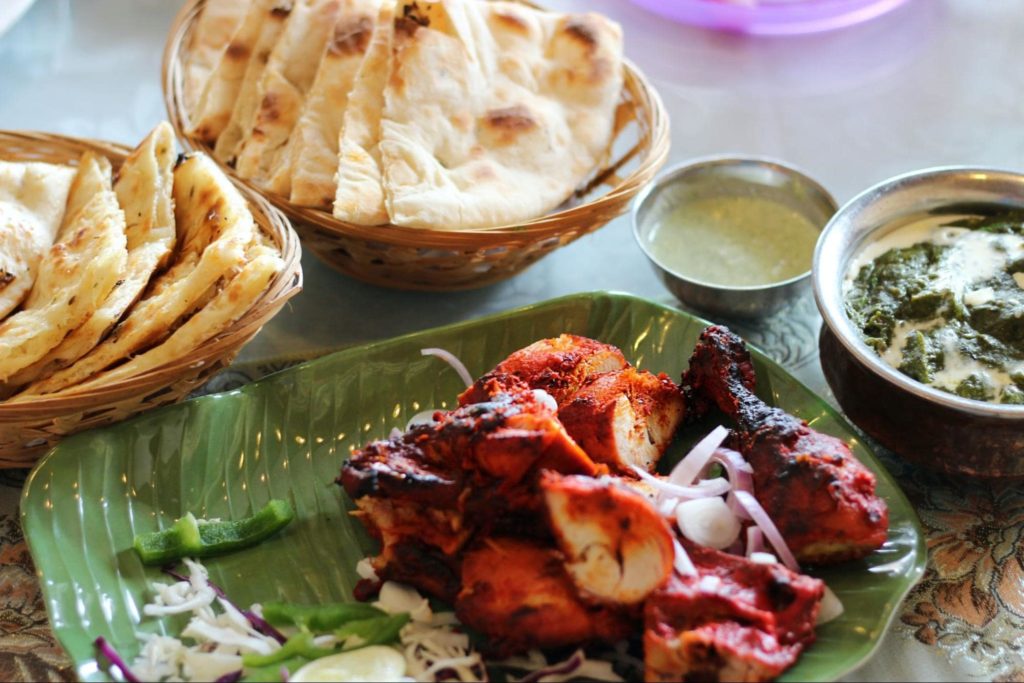
Roti vs. Naan What’s the Difference? Sukhi's
Roti vs. Naan: What are the differences? Ingredients. The primary ingredients for roti are whole wheat flour, salt, and water. On the other hand, naan is made from all-purpose flour, yeast, salt, sugar, yogurt, and milk. While roti is a healthier option as it is made from whole wheat flour, The flavor of naan is enhanced by incorporating milk.